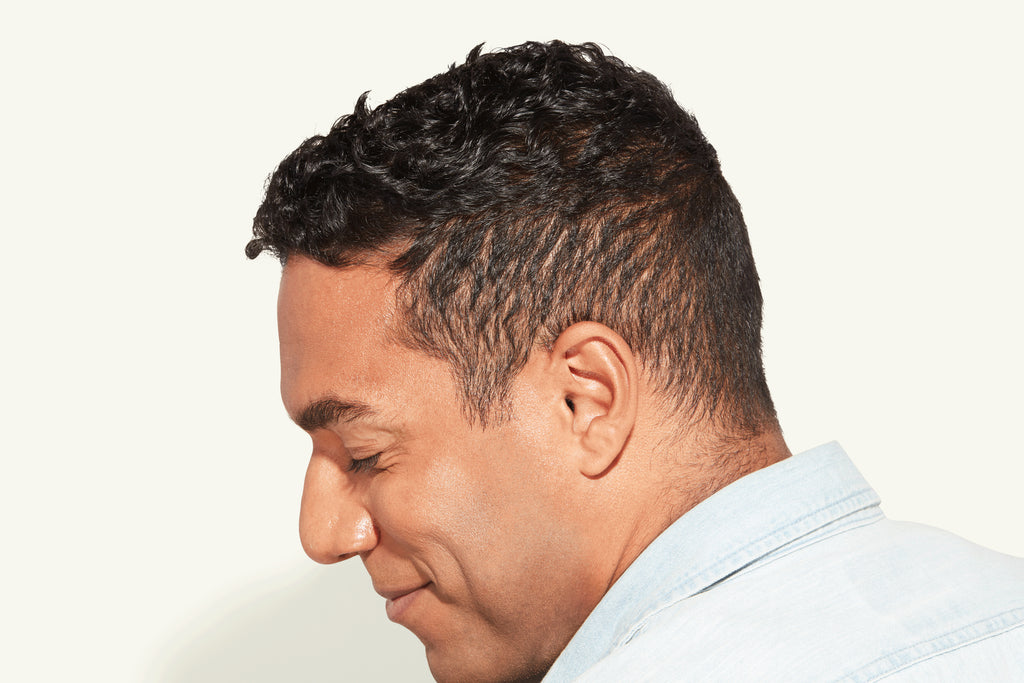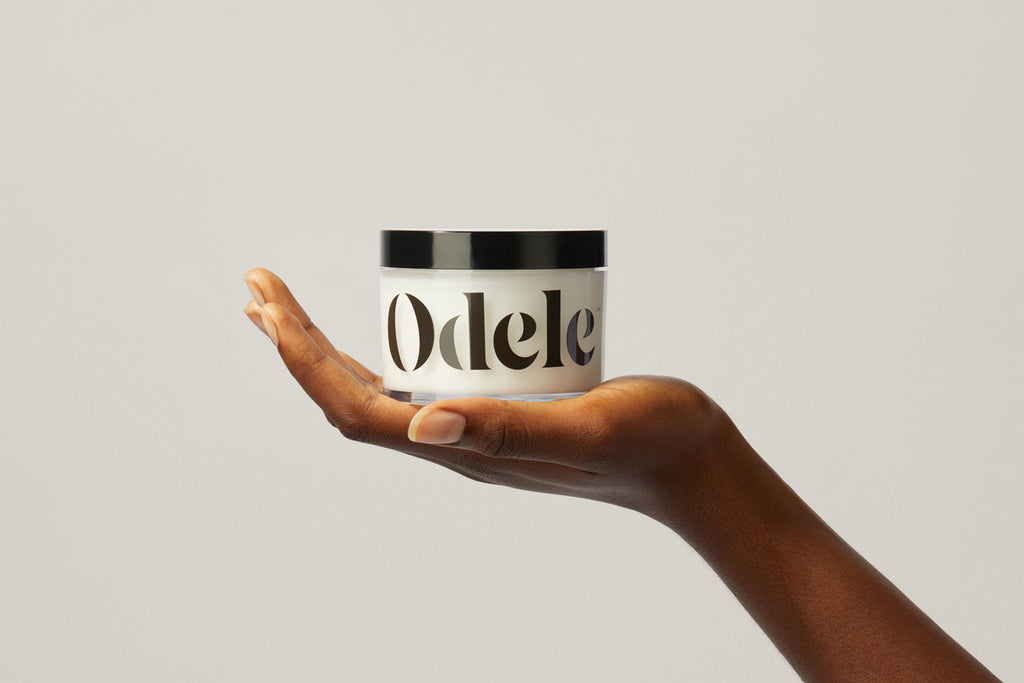Scalp care isn’t the sexiest topic, but it’s the big, shiny key to growing healthy hair. Curious about the state of your scalp's health? Here's how to get to the root of any issues and step up your care routine.
What to know about your scalp microbiome
Each part of your body has its own microbiome—an ecosystem of bacteria, fungi and other organisms. Gross as that may sound, it’s a good thing! When the ecosystem’s in balance (more positive germs than negative ones), it keeps that area of your body healthy and functioning properly. As such, keeping your scalp microbiome balanced is important for healthy hair growth.
Here’s another way to think about it: If your head were a garden, your scalp would be the soil, and your hair, the plants. When the soil is healthy, hydrated and has plenty of nutrients, the plants thrive—hello, long, thick vines and gorgeous green leaves.
But an unhealthy environment—be it due to thirsty soil, pollution or (gulp) pests—can slow growth and cause plant health problems. The same goes for your scalp: an unhealthy environment can lead to weaker strands, hair loss, stunted hair growth and skin conditions.
What causes an unhealthy scalp?
Anything that disrupts the microbiome can mess with your scalp’s health. Some of the most common culprits include:
- product buildup
- pH imbalances
- over-cleansing or under-cleansing
- too-tight hairstyles
- diet/dehydration
- health issues like stress, hormonal changes or illness
What does a healthy scalp look like?
A healthy scalp should be clean, clear and hydrated—think soft and supple vs. dry and flaky. Other signs of a happy scalp include:
- free of excessive oil and buildup
- itch-free
- pain-free
- no redness or inflammation
- no dandruff/flakes
- no pimples, sores or scabs
- healthy hair growth (no excessive shedding or hair loss)
If your scalp’s somewhat on the oilier or drier side, don’t fret—you’ll just want to factor this into your hair care routine.
But if you’re dealing with major flaking or itching, your scalp feels painful to the touch, or you’re shedding more hair than usual, talk to your dermatologist or medical professional.
How to step up your scalp care routine
1. Get your nutrients. Eating your vitamins helps to balance your scalp microbiome. A scalp-healthy diet is rich in dark green veggies (think broccoli and kale), lean proteins like chicken, beans and tofu, and lots of nuts and seeds. Supplements containing essential nutrients like biotin, vitamin B12 and iron are great for promoting scalp health, too.
2. Exfoliate. Does your scalp get oily between washes or feel greasy from products? Keep buildup and flakes at bay with a gentle exfoliator, like our Scalp + Body Scrub.
3. Cleanse with care. Make sure you apply shampoo directly onto your scalp when washing. If your scalp doesn't feel fully clean after the first rinse, go ahead and repeat. Consider deep-cleansing with a clarifying shampoo if your regular shampoo isn't cutting it.
4. Hydrate. A gentle, moisturizing shampoo and conditioner can help you out here—as can avoiding harsh chemicals and styling products that strip away the scalp’s natural oils.
5. Soak up the sun. Research shows that vitamin D deficiency is linked to hair loss. If you live somewhere that doesn’t get year-round sunshine (like us), stock up on vitamin D supplements to support your scalp and hair.
6. Massage it out. Beyond potentially stimulating hair growth, massaging your scalp can help loosen stubborn buildup and remove dead skin cells. You don’t even need a fancy scalp massager to do it: simply use your fingers or a comb while you work in your scalp scrub or shampoo.
What if I have a sensitive scalp?
We get how hard it can be to care for sensitive skin—and we’re here for you! We had the most sensitive scalps in mind when we formulated our award-winning Ultra Sensitive Shampoo + Conditioner. They are 100% fragrance-free (yay for zero irritation!), contain hydrating, soothing oat extract and get the National Eczema Association’s stamp of approval.











